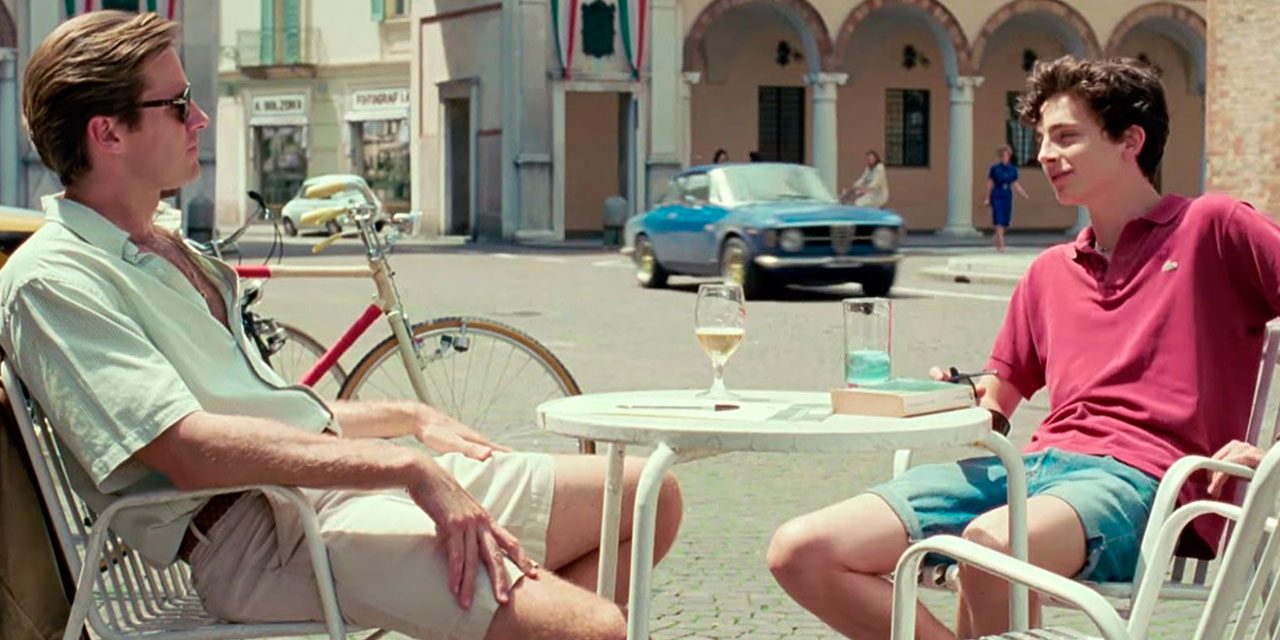Suddenly Italy’s darling, Guadagnino (until yesterday the most common reaction when mentioned was “Guadagnino who???”) gives us a movie that strikes the right notes and lingers in the viewer’s eyes for a long time. Perhaps, the greatest perk of “Call me by your name” is its inner levity, surely enhanced by James Ivory’s script; plus, Guadagnino managed to transform Crema, a relatively obscure town in Northern Italy, into a Garden of Eden, comparable to much-celebrated Tuscany. Therefore, it is for this reason that us – grey inhabitants of the Po river flatlands – thank Guadagnino for his ability in depicting our land as if it were Greek Arcadia.
Part of AsinoVola newsroom has endeavoured the review of “Call me by your name”, as always with a touch of cynicism.
Call me by your name – seen by Margherita Fontana
Elio Perlman (Thimothée Chalamet) is a precocious 17-year old boy, who spends his summers somewhere in northern Italy in the villa inherited by his mother (the family is American-Jewish), transcribing music and playing the piano. The encounter with the 24-year old American student Oliver (Armie Hammer), who is staying with the family to complete his thesis with the help of Elio’s father, a famous archaeologist, will change his life forever. Luca Guadagnino shows the first instants of the pure romance which will grow between the two in the Italian summer of 1983. It’s not by chance that the director considers his film close to a Disney tale: Elio is not left alone with his feelings, but he is surrounded by the understanding of his family, especially of his father. Mr. Perlman (Michael Stuhlbarg) seems to provide the conceptual frame for interpreting this love blossom: as an archaeologist, he has educated his son to the love for beauty, to the point that we can say that the perfection of Prassitele’s statues is the same that Elio and Oliver seek in each other. Even the disputed peach’s scene (I leave the ones who haven’t seen the film yet the delight to discover what’s about) is coherent with the film’s tribute to the classicist aesthetic: beauty, sensuality and nature united into ideal perfection.
Call me by your name – seen by Carlotta Magistris
After a negligible filmography, Luca Guadagnino releases his fifth movie, Call me by your name, which he considers the end of the desire trilogy, composed by his last three films, all interpreted by famous actors. It’s a movie that created a lot of hype and crowds waiting outside the cinema to see an Italian movie, thanks to the medias but also to an increasing curiosity about cinema which is timidly coming back. Full of hype, the movie moves and doesn’t let the audience down: a lot of references to the contemporary image of beauty like the vintage mood and an atmospherically and researched soundtrack which join the main theme, finely approached, of homosexuality, have a lot to do with one of the most fashionable today authors, Xavier Dolan. An impactful work which doesn’t say much about the future of his creator but that we like and most of all foreign people will like, anxiously waiting for the new way of representing what call be called the Italian dream since when La Grande Bellezza came out.
Call me by your name – seen by Elena Saltarelli
Call me by your name, directed by Luca Guadagnino, is a 2017 movie based on the novel written by André Aciman. It overall obtained three Golden Globe and four Oscars’ nominations, and although it was distributed in Italia with shameful delay, it can be considered an Italian bucolic jewel, with a French-American production. This movie is located in the North Italian’s countryside, in the first half of the Eighties, is told by the teenager Elio Perlman, that under the ethereal and delicate music of Sufjan Stevens will meet a feeling, unvoiced till now, for Oliver, the American student that arrives there to study for the thesis. Between some river dives, apricot juices and musical transcriptions the two attract and reject themselves, until they finally have each other few days before Oliver’s departure. This movie describes the post-adolescent love in a privileged and romantic context, without the homosexual relations’ rhetorical proliferation; a movie that has the scent of summer fruits, in which the pain and abandonment interweave with the happiness of finding the other, but mostly oneself. A movie that touches several emotional strings, but never screech; the action is lived as in a memory, in which the context where the plot develops is important as the plot itself. It leaves a hint of nostalgia and a sweet taste, that reminds us how sad and beautiful, sometimes, is to get lost in past memories, and see them better than they really were.









Commenti recenti